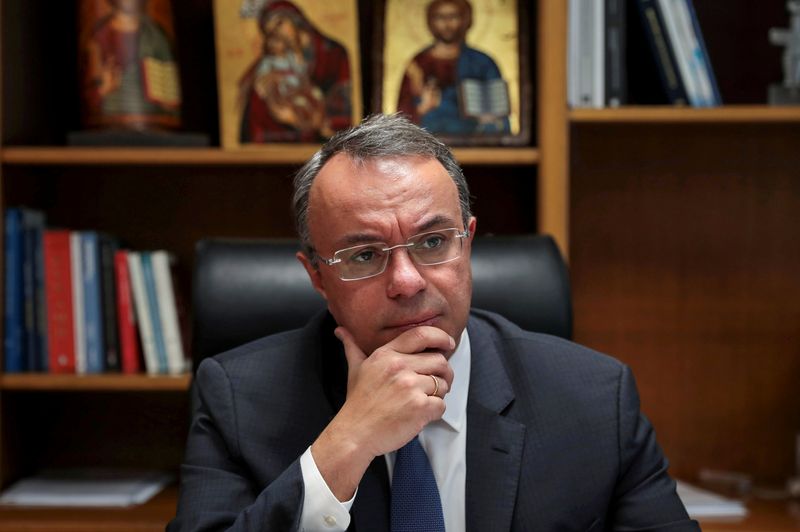By Lefteris Papadimas
ATHENS (Reuters) -Greece will repay the final tranches of bailout loans owed to the International Monetary Fund by the end of March, two years ahead of schedule, Finance Minister Christos Staikouras told Reuters on Monday.
The country, which received more than 260 billion euros in bailout loans from the European Union and the IMF during its decade-long financial crisis, has relied solely on bond markets for its financing needs since exiting its third bailout in 2018.
Since then, it has also made several early repayments to the IMF and now owes 1.9 billion euros ($2.15 billion) in loans due by 2024, the last batch of a total 28 billion euros that the Washington-based Fund provided between 2010 and 2014.
"Greece has officially submitted a request for the full repayment of the outstanding balance of its IMF loans. The relevant procedure has been launched and is expected to be completed at the end of March," Staikouras said in an interview.
Greece remains the euro zone's most indebted nation, with public debt seen at almost 190% of gross domestic product this year. The repayment is expected to help Athens reduce the debt by about one percentage point and save about 50 million euros in interest rate payments.
PRIMARY SURPLUS
Staikouras said that despite increasing spending to deal with the impact of the COVID-19 pandemic, Greece implemented "a prudent and responsible fiscal policy and an insightful debt issuing strategy".
He said stronger growth and higher budget revenues will allow the country to return next year to a surplus in the primary budget, which excludes debt servicing costs.
"Regarding 2023 onwards, we will shift towards the achievement of realistic primary surpluses."
This would mark a significant step as Greece seeks to return to investment grade status by 2023.
The European Central Bank's hawkish turn has sent Greek bond yields to their highest levels since April 2020, with 10-year bonds now yielding around 2.5% compared with 0.9% in September 2021. Athens plans to borrow 12 billion euros in markets this year.
It sold 3 billion euros of a 10-year bond last month at a challenging time, as the ECB's pandemic bond-buying stimulus scheme is set to end in March.
The conservative government expects economic growth to top 5% this year, with a primary deficit shrinking to 1.2% of GDP from 7.3% in 2021.
Under a post bailout enhanced surveillance programme agreed in 2018, which allows Greece's European lenders to closely monitor its fiscal progress, the Mediterranean country needs to achieve a primary surplus of about 2% of GDP from 2023 onwards.
Staikouras said Greece has already started preparing to exit its surveillance programme this summer.
"We have already raised the issue of the exit from it with the European Institutions", he said.
($1 = 0.8846 euros)
